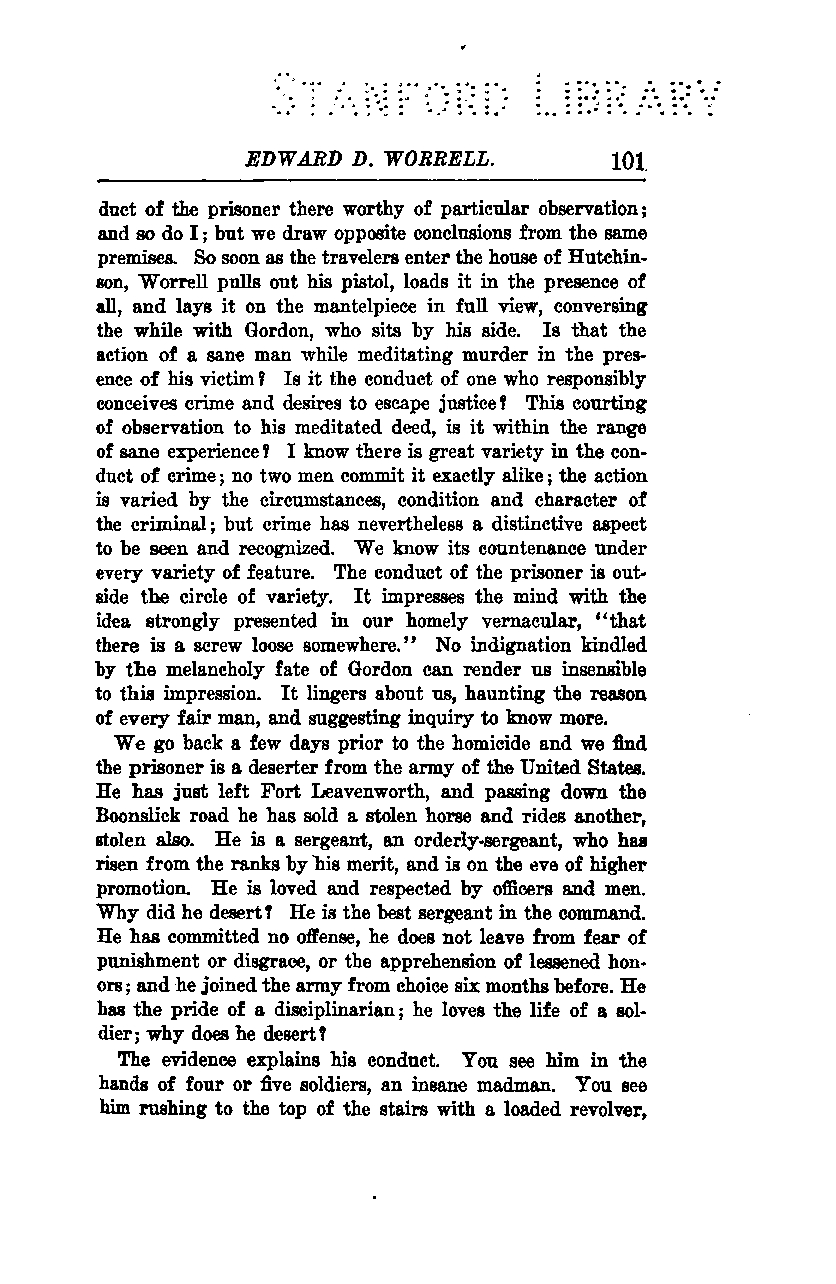
Here is the translated text as follows:
EDWARD D. WORRELL. 101.
The conduct of the prisoner there is worthy of particular observation, and so do I; but we draw opposite conclusions from the same premises. As soon as the travelers enter the house of Hutchinson, Worrell pulls out his pistol, loads it in the presence of all, and lays it on the mantelpiece in full view, conversing the while with Gordon, who sits by his side. Is that the action of a sane man while meditating murder in the presence of his victim? Is it the conduct of one who responsibly conceives crime and desires to escape justice? This courting of observation to his meditated deed, is it within the range of sane experience? I know there is great variety in the conduct of crime; no two men commit it exactly alike; the action is varied by the circumstances, condition, and character of the criminal; but crime has nevertheless a distinctive aspect to be seen and recognized. We know its countenance under every variety of feature. The conduct of the prisoner is outside the circle of variety. It impresses the mind with the idea strongly presented in our homely vernacular, "that there is a screw loose somewhere." No indignation kindled by the melancholy fate of Gordon can render us insensible to this impression. It lingers about us, haunting the reason of every fair man, and suggesting inquiry to know more.
We go back a few days prior to the homicide and find that the prisoner is a deserter from the army of the United States. He has just left Fort Leavenworth, and passing down the Boonslick road, he has sold a stolen horse and rides another, stolen also. He is a sergeant, an orderly-sergeant, who has risen from the ranks by his merit, and is on the eve of higher promotion. He is loved and respected by officers and men. Why did he desert? He is the best sergeant in the command. He has committed no offense, he does not leave from fear of punishment or disgrace, or the apprehension of lessened honor; and he joined the army from choice six months before. He has the pride of a disciplinarian; he loves the life of a soldier; why does he desert?
The evidence explains his conduct. You see him in the hands of four or five soldiers, an insane madman. You see him rushing to the top of the stairs with a loaded revolver.